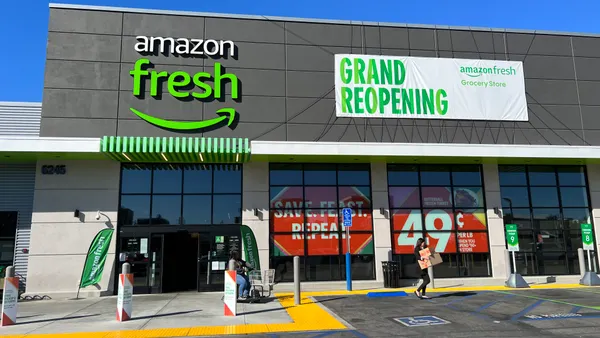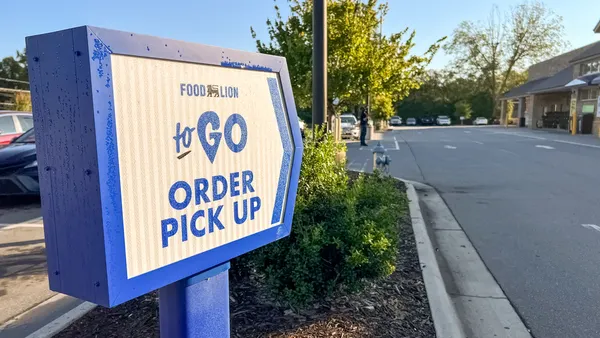Dive Brief:
- Direct-to-consumer retailer Brandless is shutting down, a company spokesperson confirmed to Grocery Dive in an email. A report from Protocol broke the news, noting the company will stop taking orders and halt its business operations.
- About 70 people, or 90% of Brandless staff, will be laid off while 10 employees will remain to fulfill existing orders and evaluate acquisition opportunities.
- On Monday, the company took down its inventory and posted a statement thanking its customers and saying it hoped to reemerge in some form eventually.
Dive Insight:
Brandless’ demise appears to be a combination of rocky leadership, a lack of profitability and competition from other low-priced retailers.
Launched with the idea that consumers would spring for $3 own brand products in grocery, household and personal care, Brandless aimed to drive volume and get consumers signing up for its membership program. One year after opening, it received an overwhelming vote of confidence from Softbank Vision Fund, which invested $240 million.
But poor shopper loyalty and red-hot e-commerce growth from other direct-to-consumer sites as well as key players like Walmart and Amazon — which boast higher customer retention and better product assortment — created an uphill battle for Brandless. The company eventually raised its prices, offered a subscription service and even dabbled in physical retail. Former CEO Tina Sharkey said in the past the company was working to stand out through relationships with customers and innovative products, but the strategy never panned out.
"While the Brandless team set a new bar for the types of products consumers deserve and at prices they expect, the fiercely competitive direct-to-consumer market has proven unsustainable for our current business model," the company wrote in a statement posted to its website.
Brandless has also had instability with its leadership. Sharkey stepped down last March and served on the company’s board, then quietly left the company entirely last fall, according to Protocol.
Evan Price, who was the company’s chief financial officer at the time of Sharkey’s departure, stepped into the role of interim CEO. The company then hired John Rittenhouse to fill the head position. Under Rittenhouse, Brandless tried boosting its prices and introducing new products like CBD oil, but he ultimately left the company after six months and Price resumed the role of CEO.
Brandless faced unique challenges, but it is far from the first direct-to-consumer business to struggle. Meal kits continue to grasp for customer retention and profitability, while startups like subscription box companies have failed to garner brand awareness. On the other hand, innovative food brands like Nuggs and natural online grocer Thrive Market have continued to grow customer count and find success with shoppers.
In a statement emailed to Grocery Dive, Price said even though Brandless is out of business, he still feels it's a strong concept.
"Brandless set a new standard in the wellness and sustainable products industry, and while we weren't able to compete competitively in today's [direct-to-consumer] market, I'm confident the next great brands of tomorrow will be built from this experience," he said.













